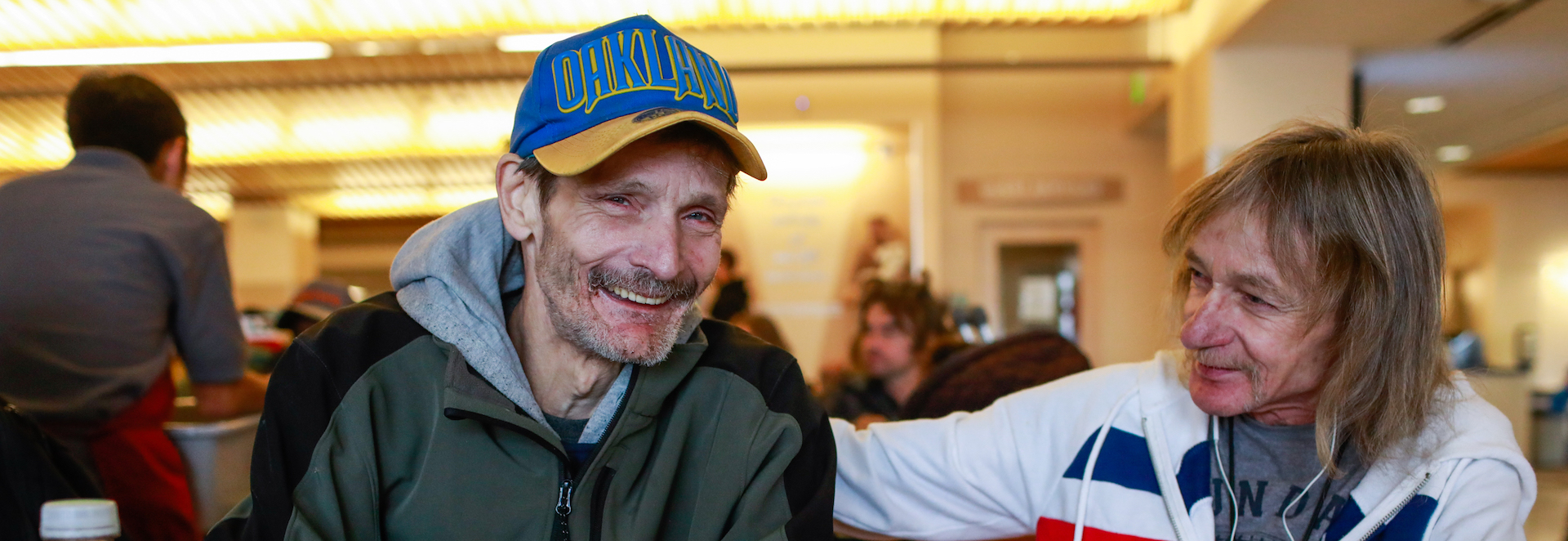Since our founding by Father Alfred Boeddeker in 1950, St. Anthony Foundation has served more than 47 million meals. Poverty, homelessness, and food security continue to be pervasive issues that affect our entire community. Progress in this arena will require our collective work and wisdom. In that spirit, we would like to share with our community the information we have gathered so that you have more information about the work that we do here at St. Anthony’s and why we do it.
Who are our “guests”?
St. Anthony Foundation offers essential and life-changing services to our guests. We use the term “guest” out of a sense of deep respect to convey that each person who comes to us in need is welcome and invited to join our community.
Key takeaways:
- The population of those we serve is getting older. We have reached a new high of 63% of our guests over that age of 50 – and 19% are over 70 (more than doubling since 2015)
- 23% of seniors we serve (those over 60) are experiencing homelessness. This has decreased from 32% in our 2015 survey
- The percent of those we serve experiencing homelessness has remained stable since the 2015 survey; 53% of those we serve are housed, but still use our services. This can be attributed to the high cost of housing, as well as the need to be in community with others
- 79% of our guests live alone
- 16% of our Dining Room guests are experiencing chronic homelessness
- Guests who first came to us during the pandemic were less stably housed, younger, and more in need of basic services like showers, laundry, and daytime shelter
- 62% of guests who came to St. Anthony’s after COVID started were experiencing homelessness
- 60% became homeless after COVID started
- Guests who use our Dining Room services predominantly identify as male (77%)
- Other St. Anthony’s services serve a greater diversity of guests, but our Dining Room service continues to see men
- There continues to be a digital divide – as providers, we need to continue to be cognizant that we have ways for our guests to access services that do not require internet access
- 40% of Dining Room guests do not have access to their own phone
- An additional 20% do not have access to the internet on the phone that they do have
St. Anthony’s is working to address these changing needs through our Essential Services (food, clothing, hygiene, safety); Health Care (Medical Clinic, Father Alfred Center); and Care Integration (Companions, Workforce Development, Transitional Employment, and Women’s & Children’s Services). We offer one of the broadest portfolios of direct social services in the city, all nearly under one roof. As a learning organization, St. Anthony’s aspires to set the quality gold standard for care integration, delivered in a uniquely Franciscan way with companionship at the heart.



